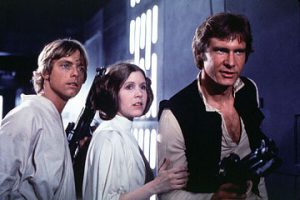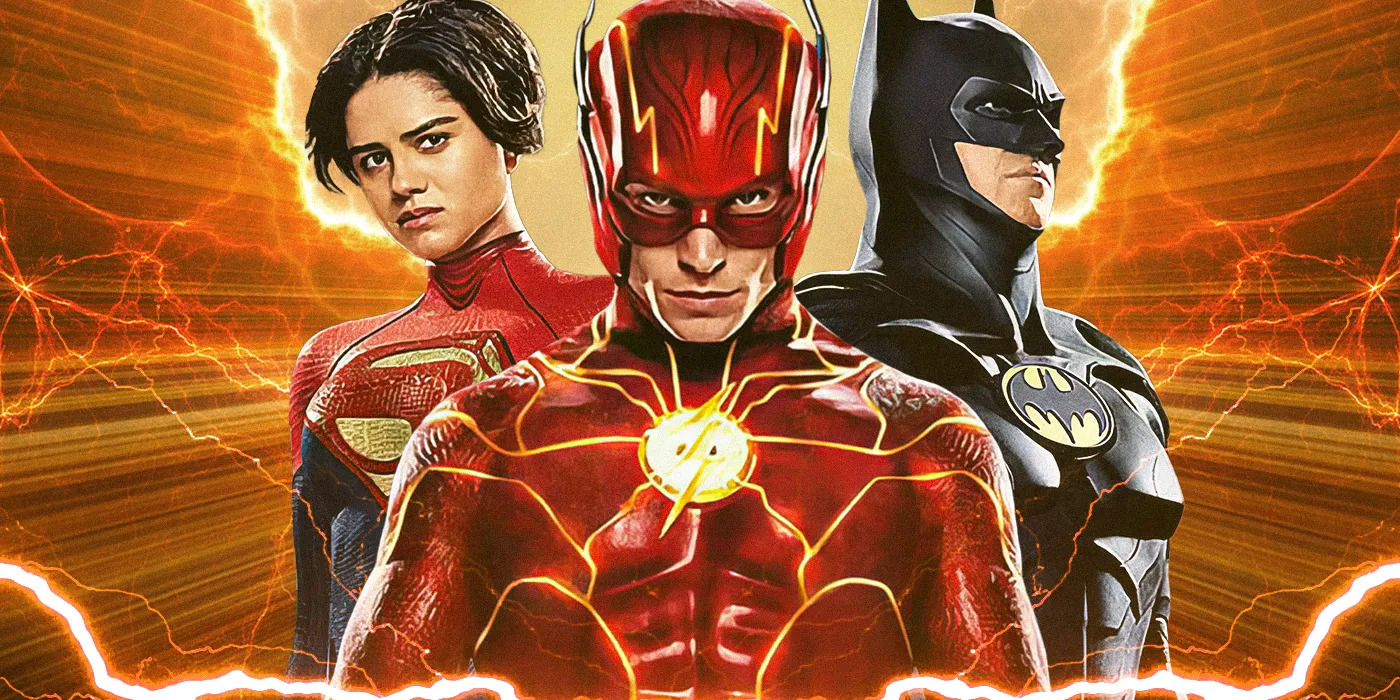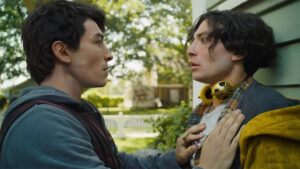Indiana Jones and the Dial of Destiny
Posted on June 29, 2023 at 5:24 pm
B +| Lowest Recommended Age: | Middle School |
| MPAA Rating: | Rated PG-13 for sequences of violence and action, language and smoking |
| Profanity: | Some strong language |
| Alcohol/ Drugs: | None |
| Violence/ Scariness: | Extended peril and action-violence, characters injured and killed, some disturbing images |
| Diversity Issues: | None |
| Date Released to Theaters: | June 30, 2023 |
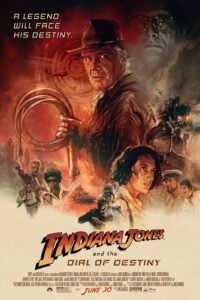
But the now of this movie takes place in the summer of the first moon landing, 1969, and Indy is being grumpy at his retirement party (which, oddly, occurs before the end of the semester, despite his just having told his bored students what will be in their exam, but okay).
Basil’s daughter Helena (Phoebe Waller-Bridge) surprises Indy, who has not seen her since she was a little girl. Her father’s obsession with Archimedes’ dial ruined his life. But Helena is now looking for it, too. And so is that Nazi officer (Mads Mikkelse), who, like Werhner von Bron, was brought to America instead of tried for war crimes, because his scientific knowledge was essential to the development of the space program.
As with the third and fourth films, we get just enough about what is going on with Indy to add some emotional heft to all of the action scenes. We learn why he is estranged from Marian (Karen Allen). We learn about his relationship with Basil and Helena and some regrets he may feel about all three of them. We also get to catch up briefly with some friends from the earlier films, including the warmhearted Sallah (John Rhys-Davies) and his family. There are some callbacks to the earlier films, and of course one of the all-time classic John Williams movie scores, guaranteed to make pulses race. Are there snakes? You’ll just have to wait and see.
And of course we have lots of action. The opening chase scene on and on top of a train is everything we hope for in an Indiana Jones movie, witty, exciting, well-paced. Director James Mangold (“Logan,” “Walk the Line”) ably takes over for Steven Spielberg, with inventive stunts making the most of the props and settings. One under-water section is not as effective as the high-speed chases. There are some poor and tonally inconsistent choices about outcomes for some characters and a switch of allegiance that is not adequately supported by the storyline. There is an un-earned death of a character that takes us out of the film and it takes a leap near the end that did not always work for me. But we’re there to see Harrison Ford, with hat and whip, dazzle us with his action scenes and pure star power, and that is more valuable than an ancient treasure.
Parents should know that this film includes extended peril and action-style violence, with characters injured and killed. There are references to a sad death of an adult son in combat and a sad death of a parent due to a preoccupation that took over his life. Characters use strong language and drink some alcohol.
Family discussion: If you could go back in time, what time would you pick? How has Indy changed over the years? Which is your favorite Indiana Jones movie and why?
If you like this, try: the other Indiana Jones movies

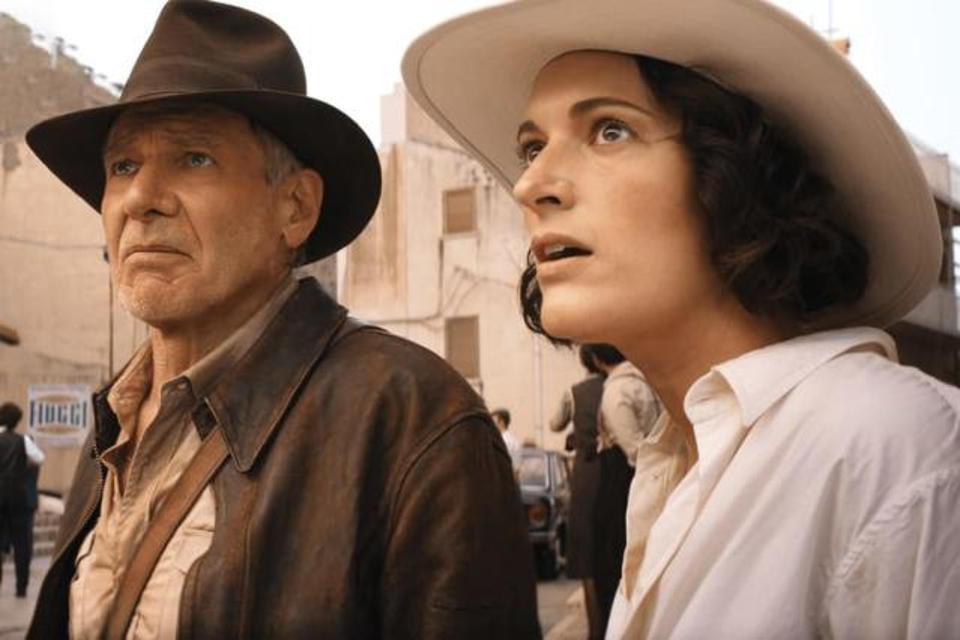
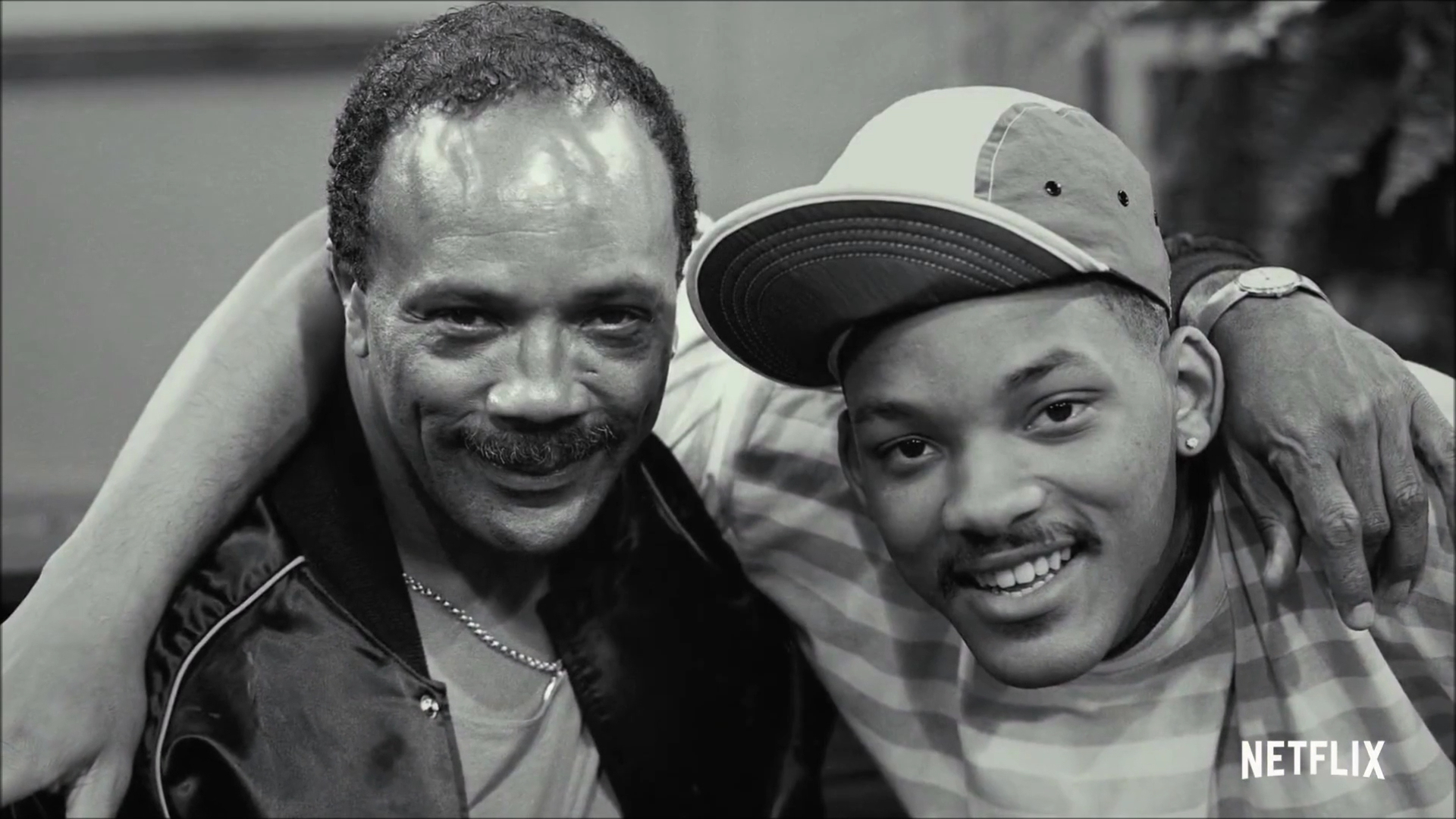
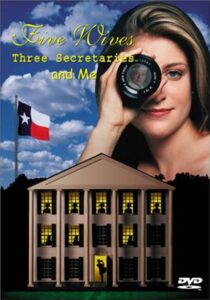
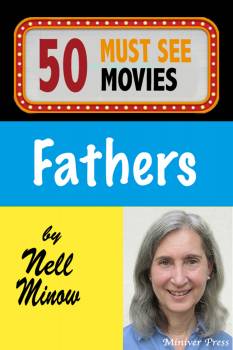
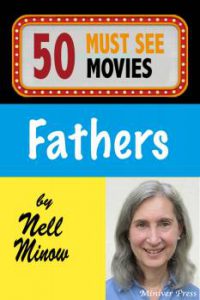 What do “Wall Street” and the “Star Wars” saga and, seemingly, about half the movies ever made have in common? They are about fathers. In “Wall Street,” Charlie Sheen plays the ambitious Bud, who respects the integrity of his blue-collar father, played by his real-life father, Martin Sheen. But Bud is dazzled by the money and power and energy of Gordon Gekko (Michael Douglas). The movie will up the ante with Bud’s father’s heart attack as we see him struggle between the examples and guidance of these two male role models.
What do “Wall Street” and the “Star Wars” saga and, seemingly, about half the movies ever made have in common? They are about fathers. In “Wall Street,” Charlie Sheen plays the ambitious Bud, who respects the integrity of his blue-collar father, played by his real-life father, Martin Sheen. But Bud is dazzled by the money and power and energy of Gordon Gekko (Michael Douglas). The movie will up the ante with Bud’s father’s heart attack as we see him struggle between the examples and guidance of these two male role models.